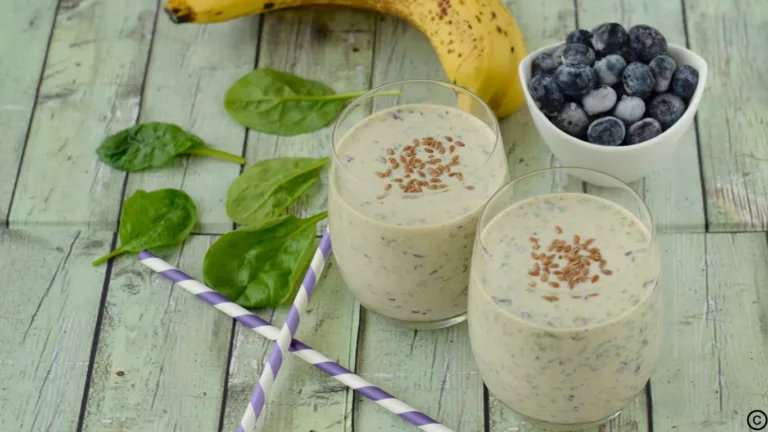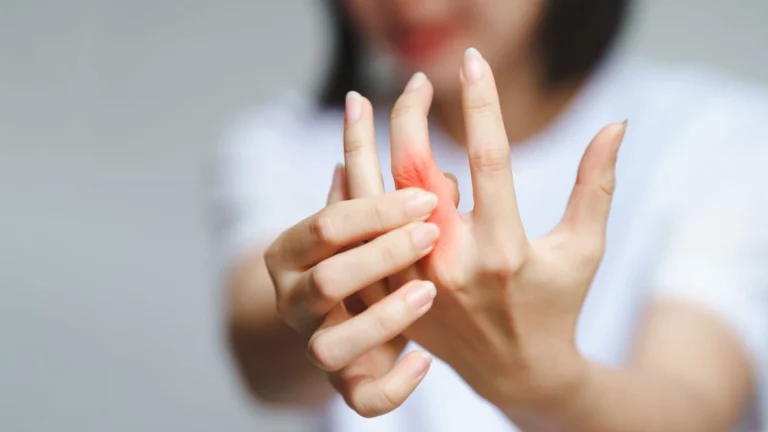Why GERD Might Be Causing That Cold Sensation in Your Throat
If you’ve ever felt that weird cold sensation in your throat after eating or lying down, and then wondered if it’s connected to GERD—you’re not alone. Working as a Medical Assistant in a busy Gastroenterology clinic, I’ve seen patients come in with all sorts of unexpected symptoms that seem totally unrelated to acid reflux. One of the most curious complaints I hear is, “Why does it feel like there’s cold air or mint in my throat when I don’t eat anything cold?” Well, that icy sensation may actually be your body trying to flag you down. Let’s talk about what’s really going on and why it might be more than just a fluke.
Understanding GERD Beyond the Classic Symptoms

Most folks associate GERD—short for Gastroesophageal Reflux Disease—with heartburn and acid taste in the mouth. But what if I told you GERD likes to play dress-up? It often shows up wearing different masks: chronic cough, hoarseness, a lump-in-the-throat feeling, or yep—you guessed it—a chilly, tingly sensation in your throat. Some of my patients describe it like sucking on a peppermint that never ends. Sounds familiar?
So, what’s up with the cold sensation?
That icy feeling can be the result of acid or even non-acid reflux irritating your upper airway and throat nerves. When the esophageal lining gets exposed to gastric contents repeatedly, the nerves become hypersensitive. This phenomenon is called laryngopharyngeal reflux (LPR), which is like GERD’s sneakier cousin. It can trigger odd sensations—burning, tightness, and yes, even that strange coldness.
- Nerve irritation: The vagus nerve, which plays a big role in digestion, also runs near the throat. When it gets irritated, it can trigger all kinds of sensory oddities.
- Refluxed material: Sometimes, even trace amounts of acid or digestive enzymes hitting the back of the throat can cause weird cooling effects.
- Post-nasal drip and inflammation: GERD can lead to inflammation that contributes to post-nasal drip, and mucus moving down the throat might mimic a cold sensation.
Real Stories from the Clinic

I remember one patient—a teacher—who came in super worried about what she called her “icy throat problem.” She thought it was allergies or maybe even a nerve issue. After listening to her story, and doing a little digging into her diet, we traced it back to late-night snacking and coffee. Classic reflux triggers. We set her up with a PPI (proton pump inhibitor) and gave her some diet tweaks—and a few weeks later, the cold throat thing? Gone. Just like that.
These kinds of stories are why I love what I do. GERD isn’t always straightforward, and neither are its symptoms. You have to dig deep, ask the right questions, and connect the dots. That’s how you serve patients, not just treat symptoms.
Common Triggers That Can Make GERD and Cold Sensation Worse

Let’s be real—GERD symptoms don’t pop up out of nowhere. Usually, they’re tied to habits we don’t even think about. And yes, that strange throat feeling might come on stronger after certain meals or actions. Here are a few usual suspects I’ve seen cause flare-ups:
- Late-night meals: Eating within 2-3 hours before bed is almost a guaranteed ticket to reflux town.
- Caffeine and carbonated drinks: Not just coffee—even sparkling water can trigger things in sensitive people.
- Spicy or fatty foods: These tend to relax the lower esophageal sphincter, letting acid sneak up.
- Smoking and alcohol: They’re both notorious for weakening the esophageal barrier.
- High-stress lifestyle: Stress can slow digestion and ramp up acid production, creating the perfect storm.
What You Can Do About It
First things first—if you’re feeling that cold sensation in your throat and you’ve ruled out colds or allergies, it might be time to chat with a GI specialist. Keeping a symptom journal (yes, even a notes app on your phone works!) is super helpful. Jot down what you ate, when symptoms hit, and how long they lasted. You’d be surprised how clear the patterns become.
Next, work on minimizing triggers. Start small. Skip that second cup of coffee or try an earlier dinner. Simple swaps can go a long way. You don’t have to give up everything—just learn your body’s limits.
How GERD Tricks the Senses

One of the things I’ve learned working alongside GI docs is that GERD doesn’t always play by the rulebook. Sometimes, it doesn’t even show up as heartburn at all. That cold sensation in the throat can be your body’s unusual way of flagging acid reflux or nerve irritation. And let me tell you, I’ve seen patients get bounced from ENT to allergist to neurologist before someone finally connects the dots and says, “Hey… could this be GERD?”
Here’s the deal—your esophagus and throat are packed with sensitive nerve endings. When acid makes contact (even if it’s minimal or non-acidic contents), the vagus and glossopharyngeal nerves can send mixed messages to the brain. Instead of burning or pain, some people perceive that as a cooling, tingling, or even menthol-like feeling. It’s strange, but totally legit. I’ve witnessed this firsthand more times than I can count.
Why It’s So Often Misdiagnosed
This is where a lot of folks get frustrated. Cold sensations aren’t usually on the typical GERD symptom list, so many providers don’t think to look there first. And if you’re like some of my patients, you might even start to doubt yourself. “Maybe I’m imagining it,” one woman told me once. Nope, she wasn’t. Once she started a low-acid diet and adjusted her medications, the weird chill in her throat faded away within two weeks.
The moral? Trust your gut—literally. If something feels off, dig a little deeper. GERD wears many disguises, and this cold-throat thing is just one of them.
Diet Tweaks That Help Reduce Cold Throat Sensations

If there’s one thing I always remind patients (and myself too, honestly), it’s that food is powerful. Making small shifts can dramatically ease symptoms. Here’s what I’ve seen work in the clinic—and yes, I’ve tried many of these myself just to better understand what my patients go through:
Try These GERD-Friendly Foods:
- Oatmeal: It’s filling, low-acid, and doesn’t aggravate the digestive system. I eat it almost every morning with almond milk.
- Bananas: Gentle on the gut and naturally low in acid. One of my go-tos when I’m feeling off.
- Ginger tea: A patient favorite for soothing reflux without caffeine.
- Lean proteins: Think grilled chicken, turkey, or tofu. Heavy red meats tend to trigger more acid.
- Steamed veggies: Broccoli, zucchini, and carrots usually don’t cause a fuss.
What to Cut Back On (Sorry in Advance)
- Citrus and tomatoes: Even a little can cause flares for some folks. Watch those salad dressings too!
- Fried foods: These linger longer in your belly and increase pressure on the lower esophageal sphincter.
- Chocolate: I know. This one hurts. But it relaxes the esophageal sphincter and triggers reflux.
- Mint: Ironically, mint can make that cold throat sensation worse by relaxing smooth muscles.
- Caffeinated drinks: Coffee and energy drinks are big-time offenders. Some patients do okay with low-acid coffee, though—worth testing.
One thing I always recommend is trying an elimination diet for 2-3 weeks. Keep it simple. Cut out the big triggers, and slowly add foods back in one at a time. You’d be surprised how clear your body makes things when you really tune in.
Lifestyle Shifts That Make a Big Impact

GERD doesn’t just come from food—how you live day to day matters a ton. I’ve had patients who didn’t even need medication once they got their routines aligned. Here are some real-world tips we give at the clinic (and yes, I’ve tried most of these myself!):
- Elevate your head at night: Use a wedge pillow or raise the head of your bed about 6 inches. Gravity can be your best friend.
- Don’t lie down after eating: Wait at least 2-3 hours. Even lounging on the couch can cause issues for some folks.
- Stay active: Gentle movement after meals (like walking) helps digestion and keeps acid where it belongs.
- Watch your weight: Extra belly fat can increase pressure on your stomach, pushing acid upward.
- Wear loose clothing: Tight waistbands can make symptoms worse—especially during flare-ups.
What I Tell Patients All the Time
I like to remind people: it’s not about being perfect, it’s about being aware. Even just recognizing that your cold throat sensation might be linked to GERD is a big first step. And once you’ve got that awareness, you can start tweaking things—bit by bit. You don’t need to overhaul your life overnight. Start with one habit, one meal, one change. That’s how healing really begins.
When to See a Specialist About GERD and Cold Sensation in Throat

If that cold sensation in your throat keeps coming back—especially if it’s paired with other reflux signs like coughing, hoarseness, or food getting “stuck”—don’t just tough it out. That’s something I always emphasize when chatting with patients at the clinic. GERD symptoms that don’t improve with simple fixes might be hinting at a more serious issue like LPR (laryngopharyngeal reflux), esophagitis, or even Barrett’s esophagus in long-term cases.
One of my patients—let’s call him Jake—waited months to get checked out. He thought the cold throat thing was allergies. By the time he saw our GI team, he had full-blown inflammation in his esophagus. Thankfully, we caught it early. With medication and lifestyle changes, his symptoms dramatically improved in just a few weeks. Jake now says he can finally enjoy pizza again without that weird icy sensation creeping in later. (In moderation, of course!)
Signs You Should Definitely See a GI Provider:
- Cold or burning throat sensations lasting longer than 2-3 weeks
- Worsening symptoms despite diet/lifestyle changes
- Unexplained weight loss or difficulty swallowing
- Chronic cough or hoarseness not linked to colds
- Feeling like there’s a lump or tightness in your throat
Getting scoped (aka an endoscopy) sounds scary to some folks, but I always explain—it’s quick, painless, and super informative. Sometimes it’s the only way to really see what’s going on down there.
How GERD and Anxiety Feed Off Each Other

This one hits home. I can’t tell you how many patients I’ve talked to who have a loop going—stress makes their GERD worse, and GERD symptoms make them more anxious. It’s a vicious cycle. And that cold sensation in the throat? It can really kick your anxiety into high gear because it feels so strange and unexplained at first.
When your nervous system is on high alert, it can intensify how you perceive physical sensations. Mild reflux might feel way more intense than it actually is. That’s why treating both the physical and mental side of GERD is so important.
Tips for Calming the Gut-Brain Connection:
- Mindful breathing: Diaphragmatic breathing can ease tension in both your gut and throat.
- Gentle exercise: Walking, yoga, and stretching help digestion and reduce stress hormones.
- Talk therapy or journaling: Getting your worries out of your head can lessen how much you feel them in your body.
- Limit doom-scrolling: Trust me, late-night Googling of symptoms can make everything worse. (Been there!)
One patient actually started journaling her symptoms alongside her moods. Turns out, her flare-ups always followed high-stress workdays. Once she started scheduling calming walks and cut back on caffeine during the week, her cold throat symptoms started fading too.
Medications That May Help (and When to Use Them)
So here’s the thing: not everyone with GERD needs to jump to prescription meds. But when diet and lifestyle tweaks aren’t enough, medications can play a big role in healing your esophagus and calming those nerves that send the icy throat signals.
Common Medications Used for GERD:
- Antacids: Fast relief, but not great long-term. Best for occasional flare-ups.
- H2 blockers (like famotidine): Reduce acid production with fewer side effects than PPIs.
- PPIs (like omeprazole or pantoprazole): Powerful acid reducers, often prescribed for more persistent or severe GERD.
- Prokinetics: These help your stomach empty faster, reducing pressure on the lower esophageal sphincter.
Quick tip: Always take PPIs on an empty stomach about 30-60 minutes before eating. That’s one thing I noticed a lot of patients didn’t know—and they’d wonder why their meds weren’t working.
Final Thoughts: Trust Your Symptoms, Even If They’re “Weird”
From working in GI for years, I can confidently say your body knows when something’s off—even if the symptom isn’t in the textbooks. That cool, minty sensation in the throat? It’s not “all in your head.” It’s your body’s unique way of signaling a deeper issue, often related to GERD.
Whether it’s diet, stress, anatomy, or a mix of everything, the key is to stay curious. Track your patterns, talk to your provider, and be patient with the process. Healing takes time. But with the right steps—and a little persistence—you’ll start to feel like yourself again. No more mystery chills in your throat, no more confusion. Just clarity and comfort.
References
Disclaimer
This article is based on my experience as a Medical Assistant in a Gastroenterology setting and is intended for informational purposes only. It should not be used as a substitute for professional medical advice, diagnosis, or treatment. Always consult with a qualified healthcare provider for personalized care.

Camellia Wulansari is a dedicated Medical Assistant at a local clinic and a passionate health writer at Healthusias.com. With years of hands-on experience in patient care and a deep interest in preventive medicine, she bridges the gap between clinical knowledge and accessible health information. Camellia specializes in writing about digestive health, chronic conditions like GERD and hypertension, respiratory issues, and autoimmune diseases, aiming to empower readers with practical, easy-to-understand insights. When she’s not assisting patients or writing, you’ll find her enjoying quiet mornings with coffee and a medical journal in hand—or jamming to her favorite metal band, Lamb of God.







